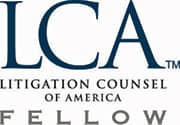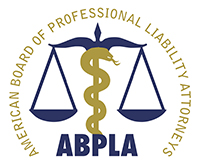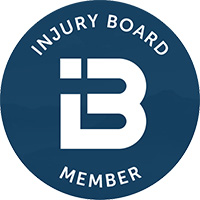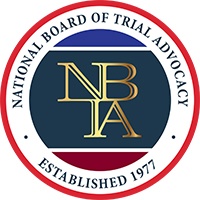
What Are the Most Common Medical Errors In Medical Malpractice Claims?
When seeking medical care, you expect to begin the journey toward better health. Unfortunately, medical errors impact the health and well-being of hundreds of thousands of patients every year. Johns Hopkins estimates that more than 250,000 people die because of medical errors every year in the U.S., making it the nation’s third leading cause of death.
The lawyers of Mandell, Boisclair & Mandell, Ltd, have fought to protect the rights of injury victims for 45 years. Our experienced medical malpractice attorneys understand the complexities of these difficult cases. If you’ve suffered because of the medical mistakes of a doctor, hospital, or other health care worker, we may be able to help. Our firm has the knowledge, skill, and resources necessary to pursue the full and fair compensation to which you may be entitled.
Below are the most common types of medical errors in medical malpractice claims.
Childbirth Injuries
Childbirth injuries are among the most heartbreaking events a family can endure. Medical errors that occur before, during, or after childbirth can inflict catastrophic consequences on the lives of babies and their families. Common errors that cause birth injuries include:
- Failure to adequately monitor the fetus in labor and delivery
- Failure to adequately monitor and control gestational diabetes
- Medical errors during labor and delivery resulting in birth injuries
- Failure to recognize the need for Cesarean section operation
- Medical misdiagnosis during pregnancy or childbirth
- Giving wrong advice or medical treatment during pregnancy
Surgical Errors
When surgeons and other medical professionals fail to perform surgery with reasonable care or fail to follow standard procedures, routine surgeries can have life-threatening consequences and even become fatal. Common surgical errors include:
- Surgical errors that injure the spinal cord or spinal nerves can result in paralysis.
- Scalpel errors: When a surgeon’s scalpel nicks an artery or severs tendons or nerves, causing permanent loss of function or dangerous bleeding.
- Wrong operations: When surgery is performed on the wrong part of the body, or in cases when surgery is performed on the wrong patient.
- Anesthesia errors: When general, regional, or local anesthetic is improperly administered, possibly leading to severe or permanent nerve injury, brain damage, or paralysis.
- Catheter injuries: When a catheter is improperly inserted, causing injury to nerves, blood vessels, and ducts, or even introducing air into the bloodstream, potentially leading to bleeding, stroke, heart attack, or embolism.
- Post-surgical negligence: When physicians or nurses fail to follow-up and monitor post-operative patients for signs of blood clots, respiratory problems, embolism, infection, hemorrhage, cardiac distress, or other life-threatening surgical complication.
Misdiagnosis or Delayed Diagnosis
An incorrect or delayed diagnosis can lead to serious injury or death. Diagnostic errors can include:
- Wrong diagnosis: When a doctor incorrectly diagnoses an illness or injury.
- Missed diagnosis: When a doctor fails to follow-up on abnormal testing results and misses a disease or illness and gives a patient a clean bill of health.
- Delayed diagnosis: When the correct diagnosis is only made after a delay.
Failure to Treat
When doctors fail to properly treat patients with medical conditions, the consequences can be life-threatening. Examples of negligence on the part of a physician who fails to treat a patient can include:
- Failure to treat conditions in a timely manner or at all
- Failure to inform patients of available treatments for their condition
- Failure to refer patients to specialists when necessary
- Failure to perform required medical tests
- Failure to assess and monitor a patient’s condition
Prescription Errors
Mistakes involving prescription drugs can cause allergic reactions and even loss of life. These types of errors can be made by the prescribing physician or the pharmacist. Specific types of prescription errors can include:
- Selling expired medications
- Wrong drug quantity
- Inaccurate duration of medication
- Incorrect dosing instructions
- Wrong dosage formulation
- Mislabeled medication
- Failure to inform the patient about common side effects of medication
- Prescribing medications that adversely react with other medications the patient is currently taking
- Prescribing medications to which the patient is allergic
Medical malpractice claims are commonly brought against physicians and surgeons due to misdiagnosis, surgical errors, or medication mistakes. However, nurses, office and hospital staff, and others may also be held accountable for errors, particularly in situations involving the administration of medication, patient monitoring, or failure to communicate critical information. In addition, healthcare professionals such as dentists, therapists, pharmacists, plastic surgeons, chiropractors, holistic practitioners, and naturopaths, can also be held accountable for medical malpractice if their negligence leads to patient harm.
Rhode Island law allows victims of medical error to hold healthcare providers accountable for injuries sustained due to error. However, having the right to hold a negligent healthcare provider accountable and successfully doing so are very different things. The medical malpractice lawyers at our Providence office are here to review your case and help you determine the best way to seek the compensation you are due.
The first step in determining liability in a medical error case is proving that a duty of care existed.
The second step in determining liability involves demonstrating that the healthcare provider breached their duty of care. This typically requires finding evidence that the provider’s actions or omissions deviated from the accepted standards of care in the medical community. It may require reviewing medical records, working with various medical experts, and conducting interviews with witnesses and others familiar with the situation.
The third element in establishing liability requires proving causation, which means showing that your injuries would not have occurred in the absence of the healthcare provider’s negligence.
The final element in establishing liability involves demonstrating that you suffered damages as a result of the provider’s negligence. These may include additional medical costs, loss of earnings, personal suffering, and anything else related to your injury. Calculating damages requires a full assessment of how the injury has and will continue to impact your life.
Determining liability in a medical error claim can be an incredibly complex process involving expert witnesses, a knowledge of medical malpractice laws in Rhode Island, and a working understanding of acceptable standards of care. Having an experienced medical malpractice lawyer on your side is the best way to ensure your rights are protected.
Medical error claims involving children may sometimes have specific elements that differentiate them from those involving adults.
In a medical error claim involving a child, factors such as future medical costs, potential earnings, and lifetime care must all be carefully considered. In cases of child injury, the child’s lifespan, potential future development, and life opportunities that may have been altered due to the medical error must also be considered when calculating damages.
Determining how much a child’s medical malpractice claim is worth relies on understanding all of the ways the injury might impact their future health and happiness. Having a qualified Providence medical malpractice lawyer on your side can help to ensure you understand your rights, your options, and when it might be best to seek compensation through legal action.
Medical errors are among the leading causes of death in the United States and a significant issue within the healthcare system. However, statistics regarding medical errors likely underrepresent their true prevalence. Not all errors result in death or serious injury, and not all are reported or even recognized as errors.
If you believe you or someone you love has been the victim of a medical error, it’s a good idea to discuss your case with an experienced medical malpractice lawyer. During your consultation, you can learn more about your rights and options to determine how best to proceed.
The complications that arise following a medical error depend on the nature of the error, the patient’s health at the time of injury, the condition being treated, and many other factors. In some instances, a medical error may lead to a worsening of the original condition. In other cases, medical errors can lead to entirely new illnesses or injuries, such as infections or injuries resulting from surgical mistakes.
In severe cases, a medical error can lead to long-term disability or even death. Even less severe errors can lead to significant harm, including prolonged recovery times, additional medical treatments or surgeries, psychological trauma, and the loss of trust in healthcare providers.
In addition to physical and emotional concerns, medical errors can also lead to financial burdens from increased medical bills, lost wages, and other costs, such as assistive technologies or home modifications made necessary by new limitations. Both the immediate and long-term costs associated with medical errors must be considered when seeking compensation.
In Rhode Island, hospitals can be held legally accountable for medical errors under many different circumstances. For example, if the individual who committed the error was an employee of the hospital and the error occurred within the scope of their employment, the hospital can be held liable under the legal principle of “vicarious liability” or “respondeat superior,” which essentially means an employer can be held responsible for the negligent actions of its employees.
Hospitals can also be held accountable under the doctrine of “corporate negligence.” This means that if the hospital failed to oversee its staff adequately or ensure its staff’s competence, it could be held directly liable for patient harm. Many medical malpractice claims involve shared negligence between hospitals and individual providers, which can further complicate these already complex claims.
Securing proper compensation following medical error relies on the strength of the evidence presented. Having an experienced medical malpractice lawyer on your side can help to ensure the liable parties are identified, and a strong case is built on your behalf.
Contact a Medical Malpractice Attorney in Providence Today
If you or someone you love has suffered at the hands of a medical professional, call Mandell, Boisclair & Mandell, Ltd to discuss your case for free with an experienced medical malpractice attorney in Providence. We understand the challenges you may be facing and we are committed to helping you pursue the full and fair compensation you need to move forward.
See our results.
Call (401) 273-8330 today for a free consultation. We handle personal injury cases on a contingency fee basis, which means you only pay us a fee if we reach a successful outcome in your case.





























